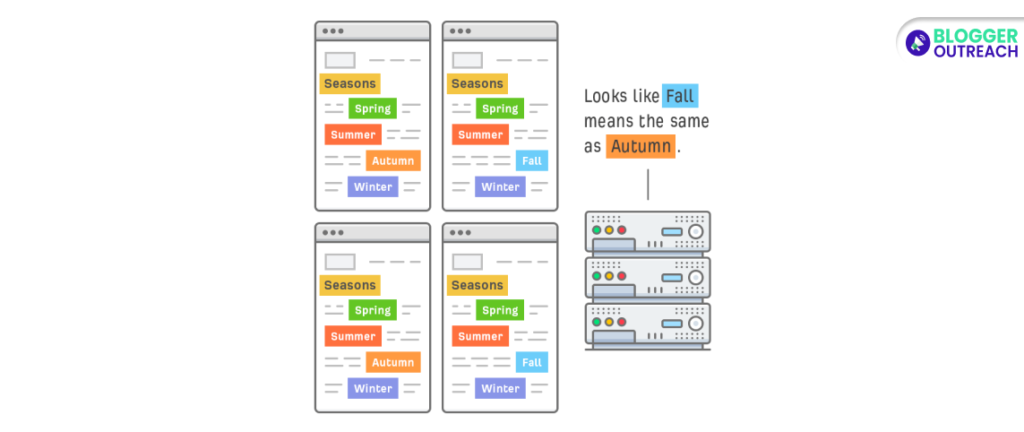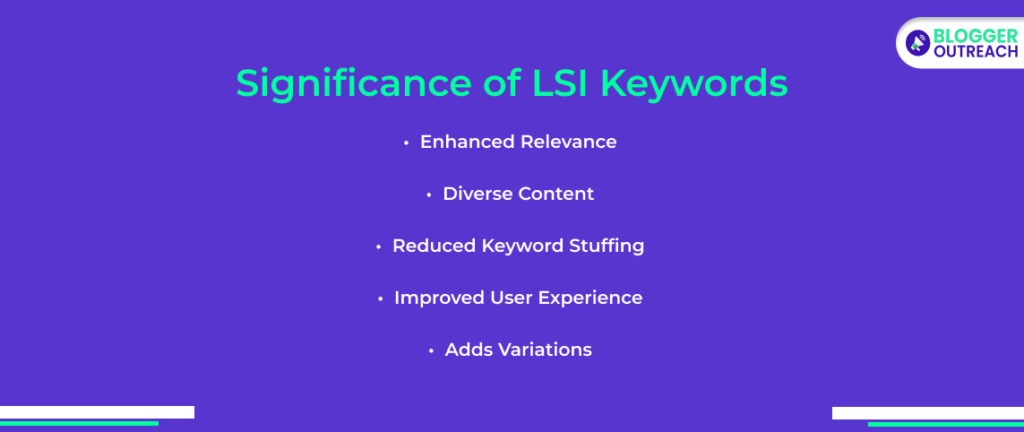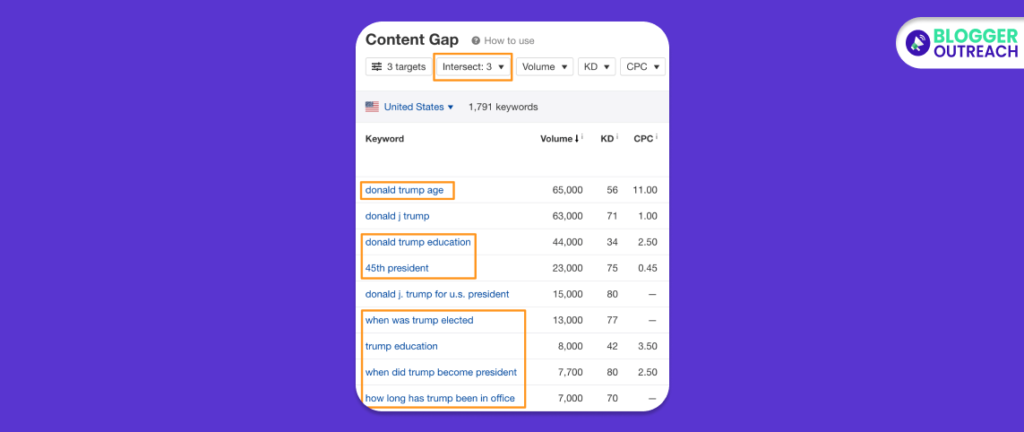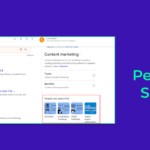Table Of Content
Officially, from the algorithm’s point of view, there is no such thing as LSI keywords.
However, individuals in the SEO community still commonly refer to the practice of including related words and phrases.
We at our agency use LSI keywords. Even if there is no official term for ‘LSI keywords’, Google loves related and contextual phrases.
Google’s algorithm demonstrates an impressive ability to grasp the context of web pages.
This is where Latent Semantic Indexing (LSI) keywords come into the picture. If you use natural related keywords, you improve your chances of the search engine to understand content’s main topic.
Within This Article, We Will Discuss:
- LSI keywords.
- Its importance.
- Ways to find them.
- How to optimize your content with LSI keywords.
Incorporating these strategies into your SEO approach will improve your chances of achieving higher rankings for well-crafted content.
So, let’s begin.
What Are LSI Keywords?

Imagine you’re searching for information online. LSI, or latent semantic indexing, is like a clever helper for search engines. It helps them understand the real meaning of words you use in your search.
Instead of just looking for an exact match of your keyword, LSI looks at related words and phrases. It connects the dots between words that have a similar meaning. This way, it can show you more relevant results, even if the exact words aren’t there.
For example, if you search for “healthy recipes,” LSI might also consider “nutritious cooking” or “good-for-you dishes.” It’s like LSI keywords are the search engine’s way of guessing what you really want, even if you don’t use those exact words.
Using LSI keywords in your content is smart because it helps search engines understand your content better. This can improve your chances of appearing in search results when people look for related topics.
Significance Of LSI Keywords

Do you want to boost your website’s search engine rankings and attract more organic traffic? If so, you must understand the importance of LSI (Latent Semantic Indexing) keywords in SEO.
1. Enhanced Relevance
LSI keywords help search engines like Google understand the context of your content. Your chances of appearing in various search results increase when you use LSI keywords. This, in turn, improves your chances of ranking higher in search results.
2. Diverse Content
Using LSI keywords encourages you to create more diverse and comprehensive content. Instead of focusing solely on a single keyword, you can naturally integrate related terms. This creates a more informative and valuable resource for your readers.
3. Reduced Keyword Stuffing
Historically, SEO was all about repeatedly stuffing your content with the same keyword. However, search engines have evolved, and keyword stuffing is now penalized. LSI keywords provide an alternative approach. You can use them naturally, avoiding the pitfalls of overusing a single keyword.
4. Improved User Experience
SEO isn’t just about pleasing search engines; it’s also about catering to your audience. LSI keywords help you create content that makes sense to your readers. Content that flows smoothly and provides valuable information engages visitors and encourages them to explore further.
5. Adds Variations
LSI keywords allow you to rank for a broader range of search queries. People use different words and phrases to search for the same thing. Your chances of appearing in various search results increase when you use LSI keywords.
Knowing the benefits motivates you and drives you to further action. But you need to bring those into action.
Learn How To Find LSI Keywords?
Let’s simplify the process of finding LSI keywords. Here you go:
Latent Semantic Indexing (LSI) is a way search engines like Google understand the meaning behind words and phrases on the internet. It’s essential for SEO, and here’s how it connects with LSI keywords:
Imagine you want to write about “smartphones.” Google uses LSI to figure out related words and phrases that make sense, like “cell phones” or “mobile devices.”
1. Google Autocomplete
When you start typing “smartphones” in Google, it suggests related searches. These are LSI keywords. For example, if it suggests “smartphone under 10000,” that’s an LSI keyword you can use.

2. Google Related Search
At the bottom of Google results, you see related searches. These are LSI keywords too. For “smartphones,” it might show “smartphone Samsung” – another LSI keyword.
They give you insights into what other topics and phrases are closely associated with your main keyword.

3. People Also Ask
You’ll see a “People Also Ask” section when you perform a Google search. These questions are related to your query and often contain LSI keywords. Answering these questions in your content can improve its relevance.
Let’s continue with the same example. When we put the keyword “Smartphones”, one of the People Also Ask questions was, “Which smartphones are best”.

4. Leverage Tools

Tools like Ahrefs, Semrush, and LSIGraph can help you find even more LSI keywords. Just type your main keyword, and they’ll suggest related terms to include in your content.
Google Keywords Planner is another tool. While it’s mainly for paid advertising, it can also give you LSI keyword ideas based on your main keyword.
5. Google Keywords Planner

The Google Keyword Planner, found in Google Ads (previously AdWords), aids in discovering top keywords and gauging their search popularity.
It guides advertisers in selecting cost-effective, high-ranking keywords.
With a Google Ads account, you can harness this tool for LSI keywords.
To find LSI keywords, insert a primary term into the “Discover New Keywords” tool and click “Get Results.” Observe the generated keyword suggestions.
How To Incorporate LSI Keywords Strategically

LSI keywords can hamper user experience if you are not doing it correctly. The right approach is to incorporate those naturally without hampering the flow of the content.
Plus, it is always quality over quantity. You must have the right intentions. If you intend to provide quality and better context – it’s a green signal from the viewpoint of search engines.
You must know where to incorporate these keywords strategically.
1. Blog Posts
Title: Include an LSI keyword related to your main topic. For instance, if you’re writing about “digital marketing,” you can use “online advertising strategies” in the title.
Subheadings: Incorporate LSI keywords naturally in subheadings. This can enhance the content’s organization and SEO. E.g., a section about “SEO best practices” includes “keyword optimization techniques.”
Body Content: Sprinkle LSI keywords throughout the article to make it more informative. For example, if you’re writing about “healthy recipes,” you can mention “nutrient-rich meals” or “balanced diet plans” within the text.
2. Product Descriptions
Main Product Name: Use LSI keywords to describe the product more comprehensively. If it’s a “smartphone,” consider adding phrases like “high-resolution camera” or “fast processor” in the description.
Bullet Points: When listing product features or benefits, incorporate LSI keywords. For example, if you’re selling a “fitness tracker,” include phrases like “activity monitoring” or “health data analysis” in bullet points.
3. Service Pages
Utilize LSI keywords in your service page headings to provide additional context. For instance, if it’s a “web design service,” you can use “responsive web development” or “custom website design” in subheadings.
Naturally, include LSI keywords within service descriptions to convey expertise. If you offer “legal consultation,” mention “legal advice” or “lawful guidance” throughout the content.
4. E-commerce Category Pages
Optimize category titles with LSI keywords to increase relevance. For instance, if you sell “outdoor gear,” use phrases like “camping equipment” or “hiking essentials.”
Write comprehensive category descriptions with LSI keywords to assist both users and search engines. Include terms like “adventure gear” or “outdoor activity essentials.”
5. Local SEO Content
In local SEO, incorporate LSI keywords that specify locations. For example, if you’re optimizing for a “New York City restaurant,” include phrases like “NYC dining experience” or “Manhattan food scene” in your content.
6. FAQ Pages
When answering frequently asked questions, use LSI keywords naturally within your responses. For instance, if someone asks, “How to boost website traffic?” you can include “increase online visitors” or “drive web traffic” in your answer.
7. Infographics And Visual Content
Add LSI keywords in the alt text of images used in your content for image SEO. This provides context to search engines. For example, if it’s an infographic about “digital marketing,” include alt text like “online advertising strategies” or “SEO tactics”.
8. Videos And Multimedia
In video SEO, include LSI keywords in video titles and descriptions. If you’re creating a video about “home gardening,” use phrases like “urban gardening tips” or “growing plants at home.”
The Bottom Line
We hope that by now you must have understand that not all LSI keywords hold equal importance.
It‘s a great idea to have meaningful and contextual LSI keywords. You must place these keywords that go well with the content’s natural flow.
BloggerOutreach is a leading SEO agency catering to SEOs and agencies around the globe. If you want 3X visibility and growth, get help from our experts.
Want to know how we work? See our SEO case studies.
Read Also:








